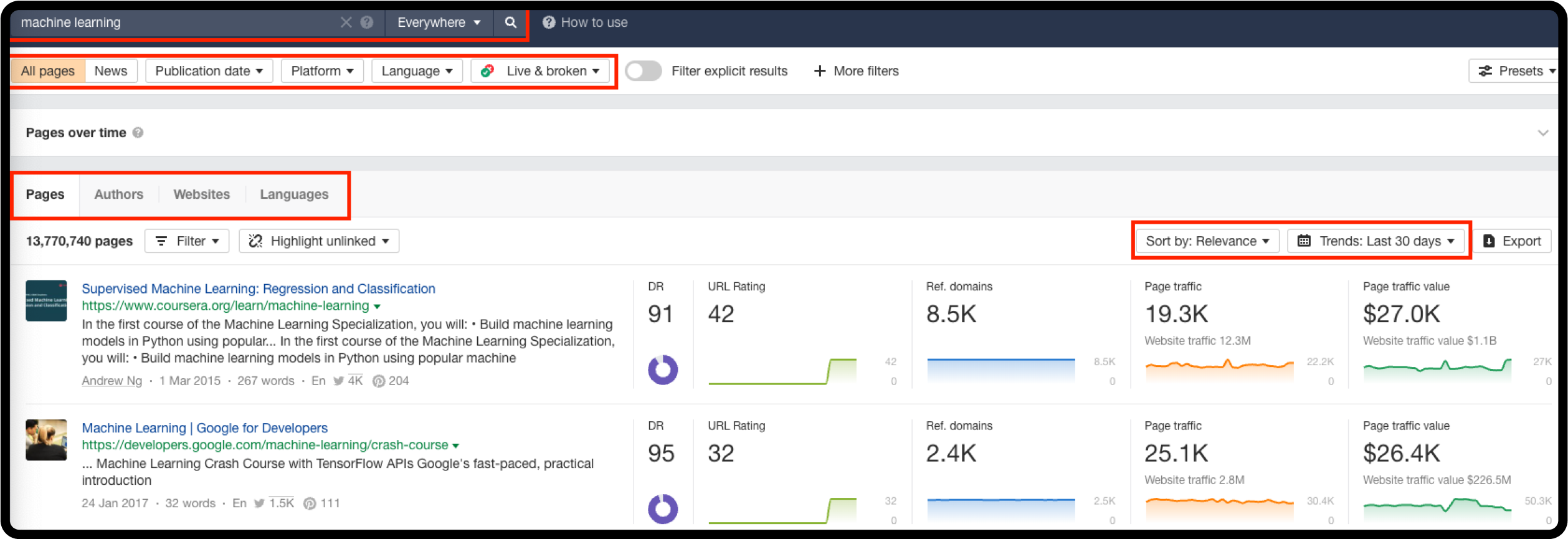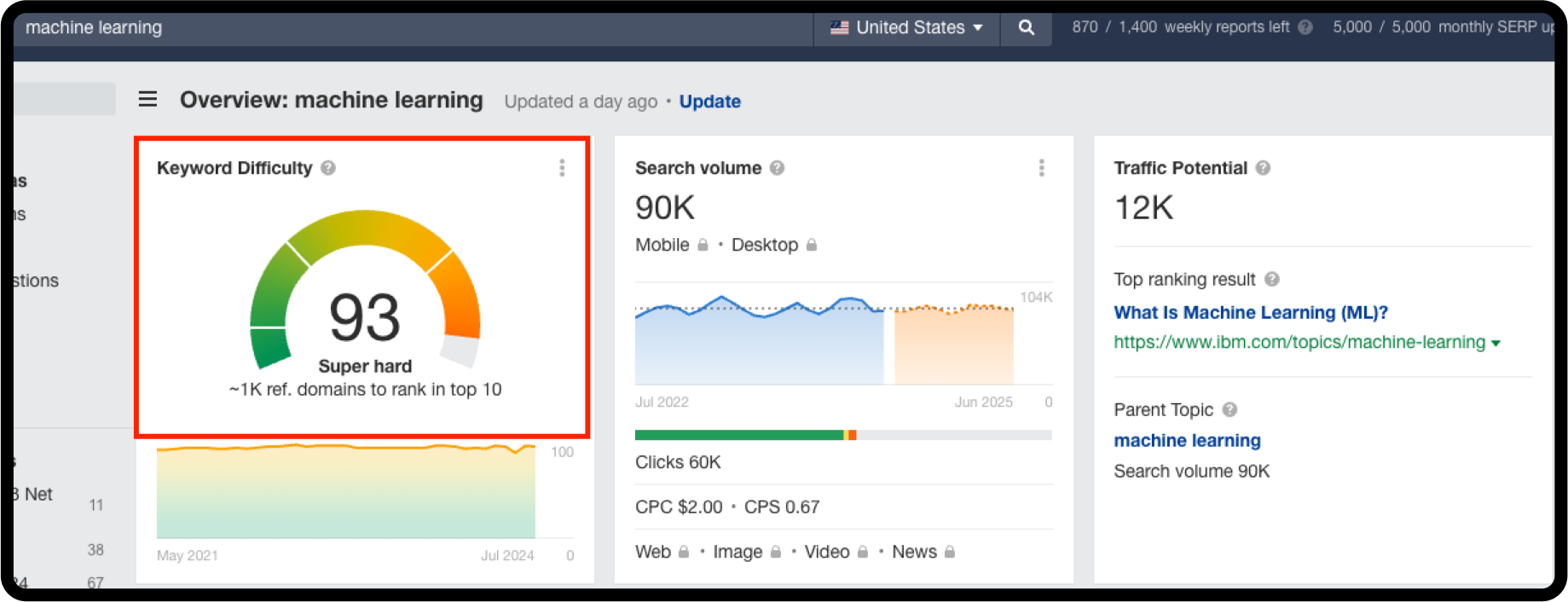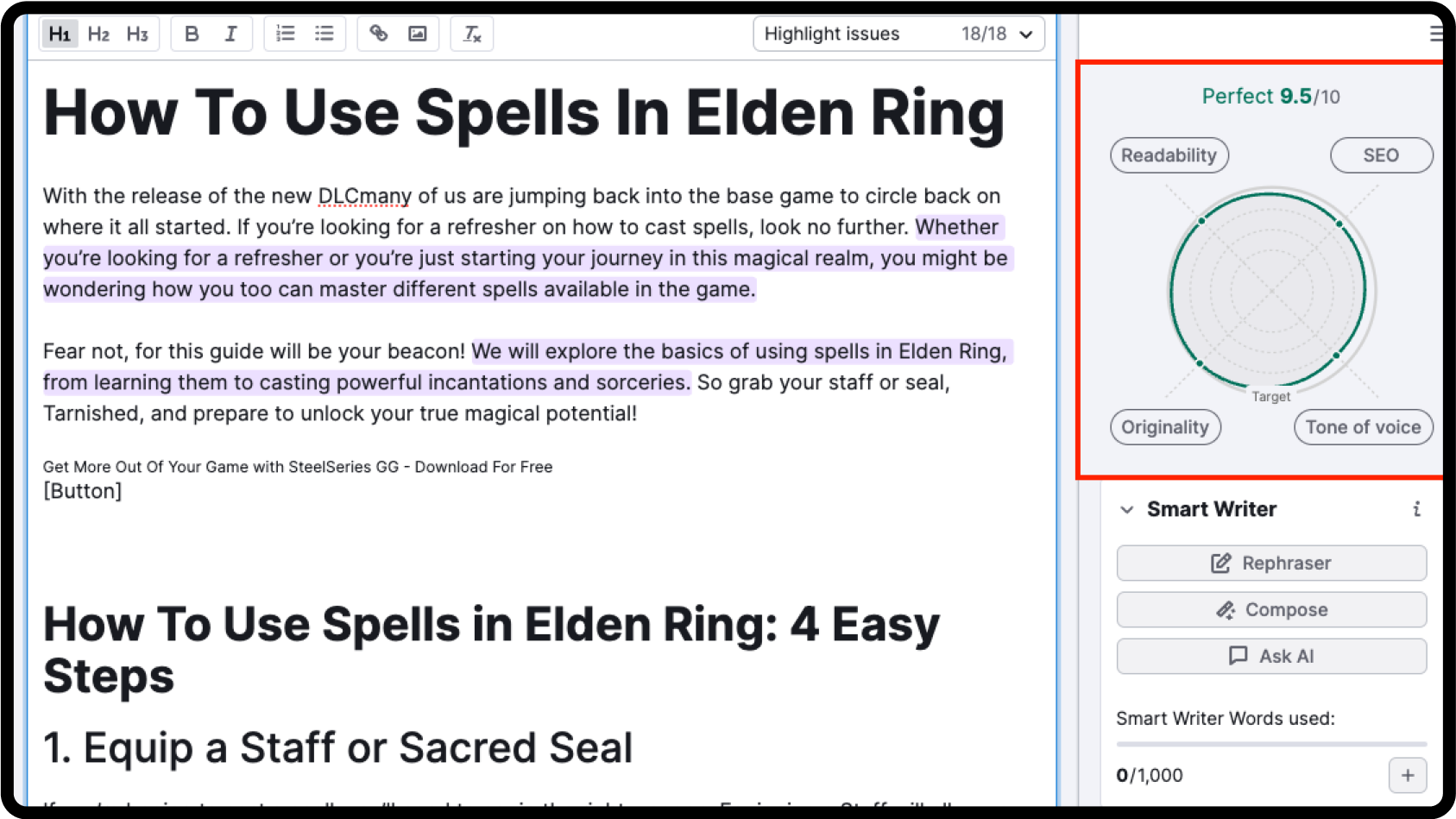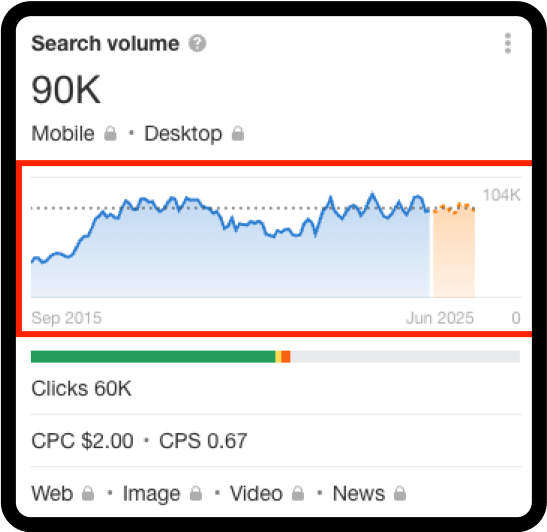If you’ve spent any time in Search Engine Optimization (SEO) over the last ten years, you probably know that the industry is now moving at the speed of sound. There was once a time where simply creating high-quality content and publishing regularly was enough to keep the pulse beating on your website. In today’s SEO landscape high-quality content is still a big need, but it’s likely not enough to make a dent or recover traffic decline caused by increased competition and changes to Google algorithms and the search engine results page.
To be successful today, you need much more than quality content and hope. You need to get technology not just on your side but in your toolbelt. Machine learning tools and resources are not only a recent addition but will continue to propel changes within the SEO and digital marketing industry. It goes without saying that the more technology we as an industry introduce, the more learnings we will have which will only cause search engines like Google to continuously make changes to adapt to the new tactics dealt by marketers around the globe.
Ready or not, here we come. If you’ve been on the sidelines waiting for a big breakthrough or idea, you might get stuck in a perpetual game of catch-up. In this blog post, we break down how machine learning can help you improve your processes and create efficiencies in your marketing funnel.
Want to learn how to take your SEO to the next level?
What are Machine Learning Algorithms?
Machine learning algorithms are trainable systems used to analyze a diverse amount of data and improve their performance and accuracy over time. These systems aren’t necessarily trained to be experts on everything, but with enough repetition, they can build up a large library of information.
When you apply this to SEO, machine learning algorithms can be utilized to understand a wide range of information enabling SEOs and marketers to make more informed decisions with greater accuracy and efficiency.
How Machine Learning Algorithms Assist SEOs
1. Keyword Research
When performing keyword research, you want to understand the most current information since SEO is becoming increasingly time-sensitive. Having a tool or method to understand keyword metrics beyond the basics is a must for those looking to finesse their competition. With more people competing for space on the first page of Google, being as up-to-date as possible is a must.
Beyond being up to date, cutting down on research time is critical. If you’re a seasoned SEO, you know what it’s like to spend hours cultivating a competitive list of potential keywords for your clients. Cutting down on research time while retaining or improving on effectiveness is the sweet spot. So you might be asking yourself, what tools are already doing this? Enter Ahrefs
While Ahrefs isn’t the only tool out there doing this stuff, once you understand what’s going on in the background, you’ll feel the same way:
Content Explorer
Ahrefs content explorer tool utilizes machine learning to help you quickly analyze HUGE amounts of content data. With just a single seed keyword or topic, you can identify high-performing content to understand what the current landscape and competition is.

You can use this view to see what topics are resonating with your audience without having to do a single second of relevant keyword research. You can use the sites and keywords to build your own list to target without having to do the upfront discovery.
Keyword Difficulty Score
Keyword difficulty has historically been a metric rooted in backlinks. It goes beyond just backlinks; the algorithm analyzes various on-page and off-page ranking factors, including content freshness, social shares, and organic traffic of top-ranking pages. This provides a more nuanced picture of the effort needed to rank for a specific keyword.

Rank Tracking
Ahrefs uses machine learning to give you precise rank-tracking data. Their keyword ranking tool analyzes historical ranking trends to predict ranking fluctuations based on competitor activity and search engine algorithm updates. This allows you to refine your SEO strategies and stay ahead of the curve.

2. Content Optimization
Again, there are many tool options out there that help you understand how your content scores when it comes to content optimization and SEO alignment. SEM Rush’s writing assistant tool is filled with machine learning additives to help you understand on-page SEO, readability and tone, content originality, and Artificial Intelligence assistant rephraser and composition tools.

This tool is dynamic and will adjust the alignment score as you type and change elements of your page. You can use this to further your understanding of what is considered better content and where certain SEO elements should be included throughout your content.
3. Content Creation
Content creation is a hot topic when it comes to the world of AI and machine learning. Google has said that AI generated content has its value but don’t underestimate the power of completely human-written first-hand experience content. With that said, companies all over the world are using AI content creation to supplement their content marketing efforts.
Having used both public and private content generators, there are certainly limitations. When using a custom-built solution, you’re more likely to be undetectable by AI text detectors and Google’s guardians.
Beyond content creation, tools like Perplexity can help you quickly fact check your content to make sure nothing more recent exists and that your tools are presenting factual information.
4. User Behavior & Intent Analysis
Machine learning algorithms are already analyzing user intent from a keyword level but continue to make advancements to make user behavior predictability even better. While keywords themselves can indicate the potential action of a user, understanding the context of the search, search history, and user demographics makes these assumptions way more powerful. Clearly understanding user intent makes your content bulletproof and way more targeted. While these insights can lead you away from your original assumptions, you’ll likely have a better return on your investment by targeting highly qualified sections of search.

Keywords and context are always good to have, but user patterns go beyond a single searcher. Machine learning that can understand seasonal fluctuations in search volume and search query variety is insanely valuable for SEOs trying to be proactive and be the first to the party when it comes to a new keyword.
Having a better understanding of these patterns can help you and your team prepare for seasonal demand shifts, target specific geographies and stay ahead of changing search habits.

5. International SEO & Multilingual Targeting
When you hear international SEO, most people immediately think about content translations. This has been a big struggle, and many companies exist attempting to solve this issue by offering software solutions that work in the background so users in different geological regions have a seamless user experience. Machine learning has come a long way but many of the basic options like Google translate or DeepL have limitations and can sometimes create more confusion than you’d want.
Machine learning and international seo go beyond just translation. There are so many ways a machine learning algorithm can help SEOs and marketers target regions more specifically and effectively.
- Machine Learning for Local Search Intent: Words can mean very different things depending on where you search. If you were to do a search for “football” in the US, you’d get a very different result in Europe. Machine learning can do the leg work for you by analyzing data in your target languages and uncovering local search trends and user intent behind keywords.
- Identifying Local Search Hotspots: Don’t just rely on global search volume. Machine learning can identify local search trends within your target markets. This can help you be proactive and move fast on emerging opportunities.
- Hreflang Tag Optimization: Crawling and validating your multilingual website to identify inconsistencies or errors with hreflang tags can save you a boatload of time. Hreflang tags are needed for search engines to clearly identify your website’s different language variations to ensure users are being funneled to the most relevant version of your domain.
- Multilingual Sitemaps and Indexing: Analyze your website structure and content across different languages, ensuring your sitemaps are optimized for search engines to properly index all language versions of your website.
- Multilingual Voice Search Optimization: Voice search is no longer an emerging trend; it’s here to stay. Machine learning can analyze voice search trends in different languages, helping you optimize your content for how users naturally speak in your target markets.
The Future of Machine Learning in SEO
Machine learning isn’t going anywhere and is only set to strength in not just SEO, but in industries around the world. Some are already using these new technologies to their advantage to provide some predictability to a once very unpredictable discipline, SEO. SEOs are constantly trying to evolve their tactics and processes to outperform the many SEOs at the cutting edge of new technology like machine learning.
If you want to hop on board the AI train and need a skilled partner to help you navigate, we’re NoGood for that. Here at NoGood, we are obsessed with AI and machine learning advancements and look for every opportunity to weave them into our processes and approach. Don’t sit on the sidelines any more than you have to, jump into the world of AI and learn how you can get more predictability, efficiency and lower costs in your marketing funnel.





